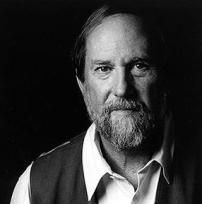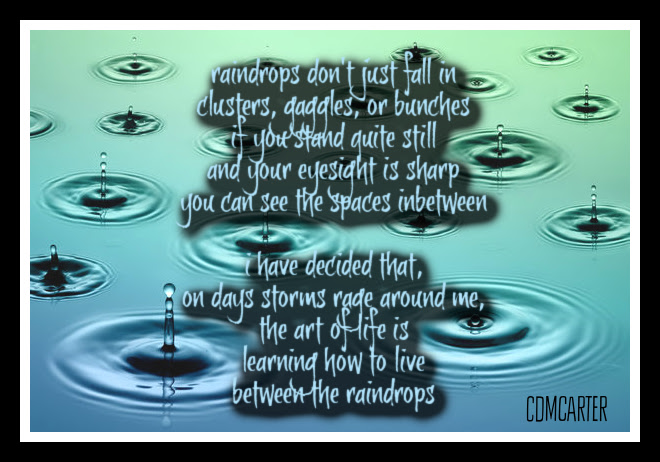Stephen Dunn
 Please see Stephen Dunn’s The Sacred for his bio.
Please see Stephen Dunn’s The Sacred for his bio.
I’m having a hard time getting back into the swing of things here. Very low energy at the moment. I was going to skip Friday Favorites for this week (which I did with the Sandbox Challenge), but then I ran across this poem by Dunn.
In the book I’m reading (An Invitation to Poetry: A New Favorite Poem Project Anthology edited by Robert Pinsky and Maggie Dietz), there are introductions to the poems by the folks who submitted them to this project. The introduction to this one was written by Leonard Oberman, 72, retired, from Carlsbad, California. I was gripped by his narrative and horrified at the same time. And I HATED Dunn’s poem! But it elicited such strong emotion from me that I had to use it today. This is what Mr. Oberman has written in his introduction…
`
My father died in July 1984, at the age of 83, in a hospital room in Encinitas, California. As he lay in his hospital bed, terminally comatose, I had a singular moment with him, two days before he died, that shook me.
My father and my mother had come up from Florida for the summer to stay with me. We all, my brother and sister, too, had tickets to the Olympic games in Los Angeles. My father had suffered a massive brain hemorrhage and was rendered brain-dead. After he lay this way for three days, the family agreed among themselves, and with the doctor’s concurrence, that keeping my father on life-support was just using artificial means in a hopeless situation. The ordeal of suspended grieving was wearing down the whole family, especially my not-too-healthy mother.
We decided to pull the plug on dad‘s life. It was done. The solution that was dripping into my fathers vein was changed from food to saline. It was with terrible mixed emotions that we then waited for his stubbornly strong hard to stop. A day or two later, and still no change in his condition (what a heart he had!), I came into his hospital room to be with him. I sat there looking at my father as the monitor registered his heartbeat, as the lung machine pumped up and down — just to be there.
I spoke to my father as he lay there, and said the only thing I could think of: “Come on Pop, come out of this coma. You know we all came here to go to the Olympics. The whole family is waiting.” I don’t know what I was thinking, other than trying to relieve my feelings of guilt and helplessness. But because of what happen next, my words and that moment were seared into my memory forever.
I swear: the heart monitor, which for four days had kept up a never changing pattern and rhythm, showed a quickening. He had heard me! Feelings of panic, and shame, and fear of the unknown knotted my gut. The pain that lingers still from that moment doesn’t come from any sense of guilt that he ever had any chance of coming alive, but from not having thought of my dad at that moment, but only of myself. I was speaking the conventional encouragements one does with a convalescent, to make myself feel noble and relieved for the effort. I had no idea he was eavesdropping. Why didn’t I say: “It’OK Pop, you can let go. You can relax. Your work is done. The whole family is in good shape”?
Within a couple of days, his heart finally stopped. As I said, the memory of it all and the accompanying pain lingers. Some years later I read Stephen Dunn’s poem…
`
This poem just convinced me that in the end, life tries to find a way. The fluttering of the bird’s wing broke my heart. It touched my own experience with a sparrow… (see A Sparrow For Mother’s Day)
`
With No Experience In Such Matters
To hold a damaged sparrow
under water until you feel it die
is to know a small something
about the mind; how, for example,
it blames the cat for the original crime,
how it wants praise for its better side.
And yet it’s as human
as pulling the plug on your Dad
whose world has turned
to feces and fog, human as–
Well, let’s admit, it’s a mild thing
as human things go.
But I felt the one good wing
flutter in my palm–
the smallest protest, if that’s what it was,
I ever felt or heard.
Reminded me of how my eyelid has twitched,
the need to account for it.
Hard to believe no one notices.

Wonderful – so touching. You keep finding them Cheryl.
LikeLiked by 1 person
This one just unnerved me. I usually like Dunn’s work…
LikeLike
Interesting
LikeLiked by 1 person
This is a poignant storying. I remember sitting by my dying mum’s bedside and saying to her it was ok, she could go. And she did that night. My brother-in-law was convinced she had been hanging on until I got there, She had been in a deep coma for many days by then. We sat with her for several days watching her slow deterioration and descent into pain. On this occasion I was on my own as the others had whipped out to attend to some essential errands. She had such severe pain, that even in her comatose state, she was writhing in agony.
We all deal with these situations differently. What I get from this poem is a whisper of the kind of relationship he may have had with his dad. A man to man joking, saying the hard stuff without saying it in words, if you know what I mean. Nice to see you back. I kind of knew you have been away, as I had a snoop looking for you. We’re currently in Darwin staying with Marc. Hope the energy picks up and you settle back into your groove xxx
LikeLiked by 1 person
Glad you got to Darwin ok. Hope you’re having fun with Marc! I’m having a horrible time getting back into the swing of things on here. Haven’t visited hardly any one. Last week was just a lost week. BUT Bran and I did stop by your blog so I could dig up your boat pictures. He was fascinated!
LikeLiked by 1 person
I’m spending time with my brother who is teaching me to make a knife!!
LikeLiked by 1 person
I did a quick reply to this earlier today while in the car. I have missed you. I hope you are getting back in the swing of things by now. It is very disorienting to be away from home. And for us we have gone from a cold winter to a hot winter. 34 today !
LikeLiked by 1 person
Well then you’d best enjoy it while you can!!! How’s IS Marc, btw?
LikeLike
A knife, huh? What are you making it out of?
LikeLike